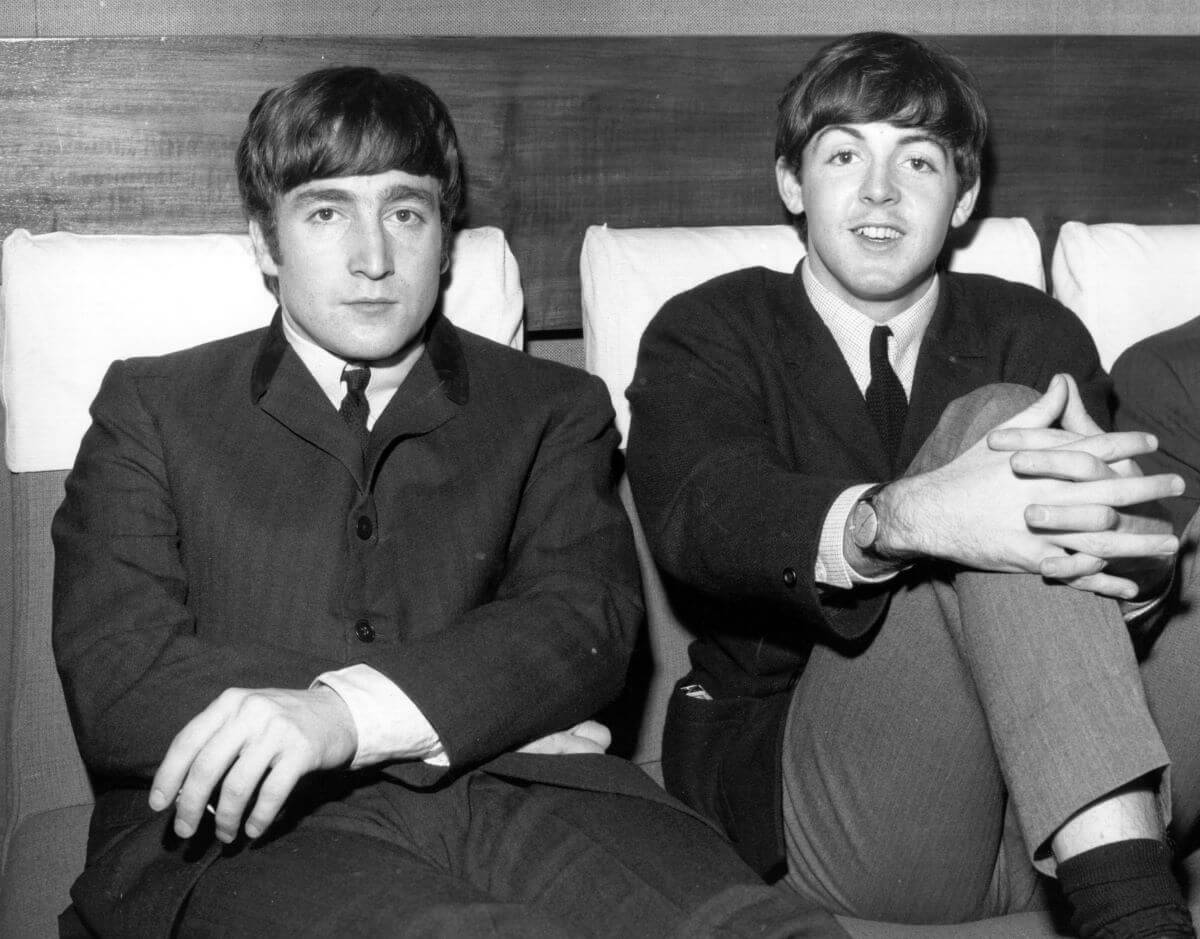
John Lennon Shared His Memories of Writing Most of ‘Eleanor Rigby’ With Paul McCartney
After the early 1960s, John Lennon and Paul McCartney didn’t collaborate as closely when writing Beatles songs. Still, they gave each other their opinions and helped finish pieces. McCartney asked Lennon for help completing “Eleanor Rigby.” Lennon explained that he was hurt when his bandmate asked him to work on it.
John Lennon said Paul McCartney can’t take all the credit for ‘Eleanor Rigby’
Lennon agreed that “Eleanor Rigby” was one of McCartney’s more complex songs, but he said this was partly thanks to him.
“Ah, the first verse was his and the rest are basically mine,” Lennon said in the book All We Are Saying: The Last Major Interview With John Lennon and Yoko Ono. “But the way he did it … Well, he knew he had a song. But by that time he didn’t want to ask for my help, and we were sitting around with Mal Evans and Neil Aspinall, so he said to us, ‘Hey, you guys, finish up the lyrics.’”
Lennon understood that McCartney was really only asking him for help, so they began working on the song together.
“We came up with Father McCartney for a bit, but Paul said his dad would be upset, so we made it into McKenzie, even though McCartney sounded better,” he explained. “And then we went on to new characters … It’s hard to describe, even with the clarity of memory, the moment the apple falls. The thing will start moving along at a speed of its own, then you wake up at the end of it and have this whole thing on paper, you know? Who said what to whom as we were writing, I don’t know.”
He added that George Harrison helped contribute the “All the lonely people” line. Beyond the first verse, one of the only elements Lennon gave McCartney full credit for was the orchestral backing.
“The violins backing was Paul’s idea,” he said. “Jane Asher had turned him on to Vivaldi, and it was very good, the violins, straight out of Vivaldi. I can’t take any credit for that, a-tall.”
According to audio engineer Geoff Emerick, though, the strings were producer George Martin’s idea. McCartney initially balked at the thought of adding them.
John Lennon revealed when his close songwriting relationship with Paul McCartney ended
According to Lennon, he and McCartney were still working on songs together in the mid-1960s. Their close songwriting relationship ended much earlier than this, though. Lennon explained that they had stopped writing everything together before they were even famous.
“That ended . . . I don’t know, around 1962, or something, I don’t know,” he told Rolling Stone. “If you give me the albums I can tell you exactly who wrote what, and which line.”
He explained that they wrote some of their best early songs together and still enjoyed collaborating, even in the later years of the decade.
“We sometimes wrote together. All our best work – apart from the early days, like ‘I Want to Hold Your Hand’ we wrote together and things like that – we wrote apart always. The ‘One After 909,’ on the Let It Be LP, I wrote when I was 17 or 18. We always wrote separately, but we wrote together because we enjoyed it a lot sometimes, and also because they would say well, you’re going to make an album get together and knock off a few songs, just like a job.”
Paul McCartney shared where he got the inspiration for the song
While Lennon said he was responsible for much of “Eleanor Rigby,” McCartney still came up with the idea for it.
“I wrote ‘Eleanor Rigby’ when I was living in London and had a piano in the basement,” he said in The Beatles Anthology. “I used to disappear there and have a fiddle around, and while I was fiddling on a chord some words came out: ‘Dazzie-de-da-zu picks up the rice in the church where a wedding has been…’ This idea of someone picking up rice after a wedding took it in that poignant direction, into a ‘lonely people’ direction.”
While he thought he invented the name “Eleanor Rigby,” he believes he likely saw it on a gravestone. He used to spend time in a cemetery with Lennon and, years later, realized there was a gravestone with the name “Eleanor Rigby” on it.


